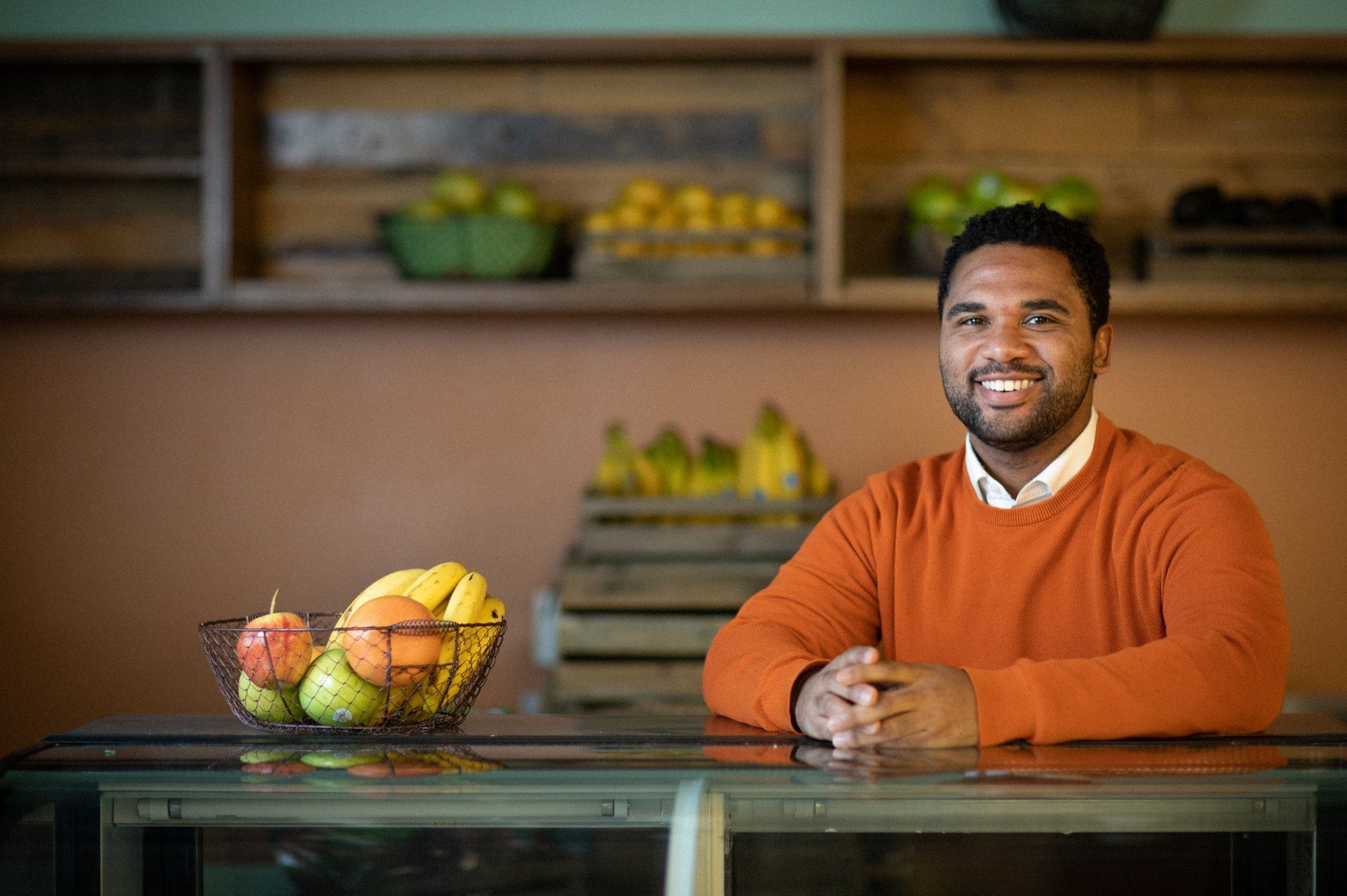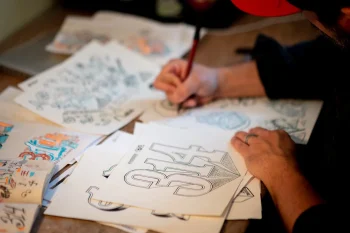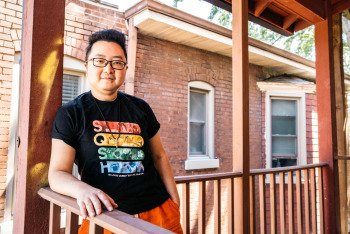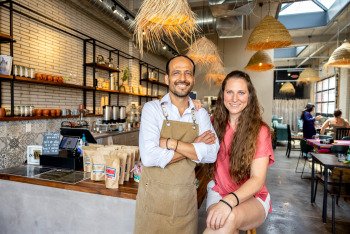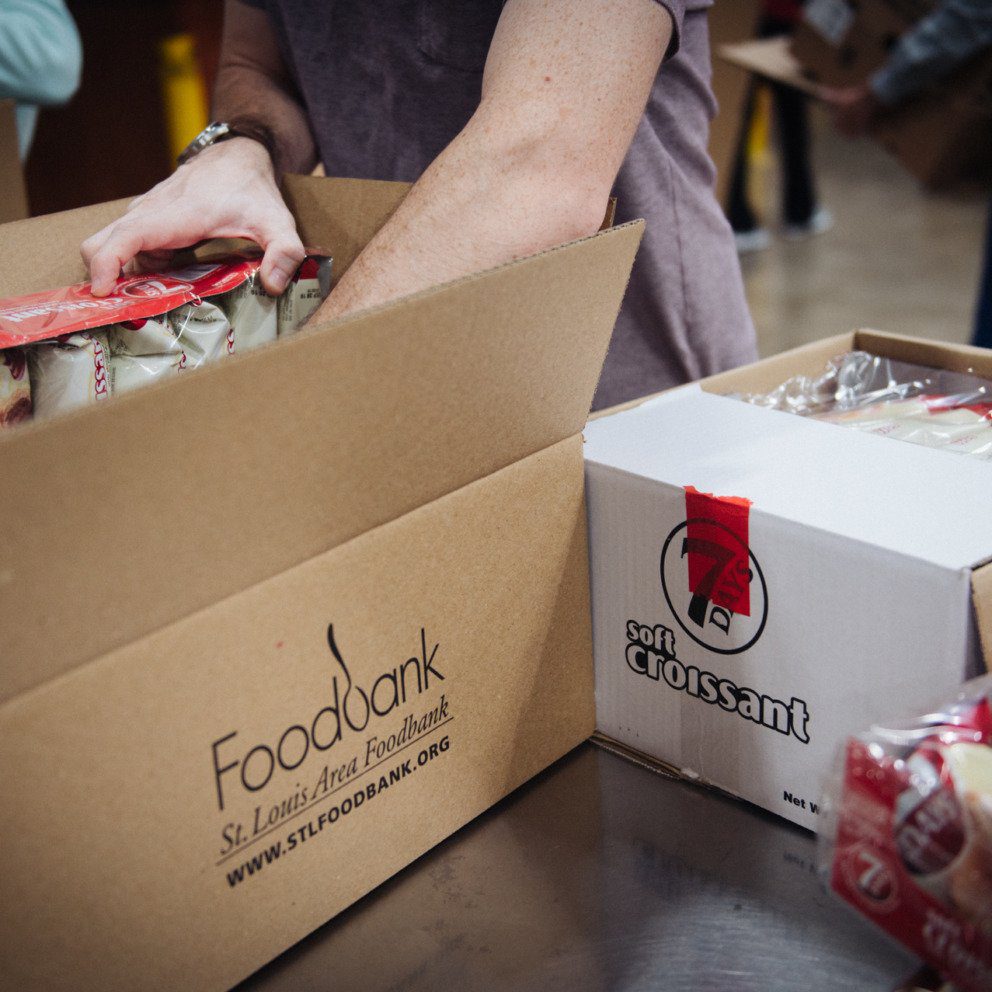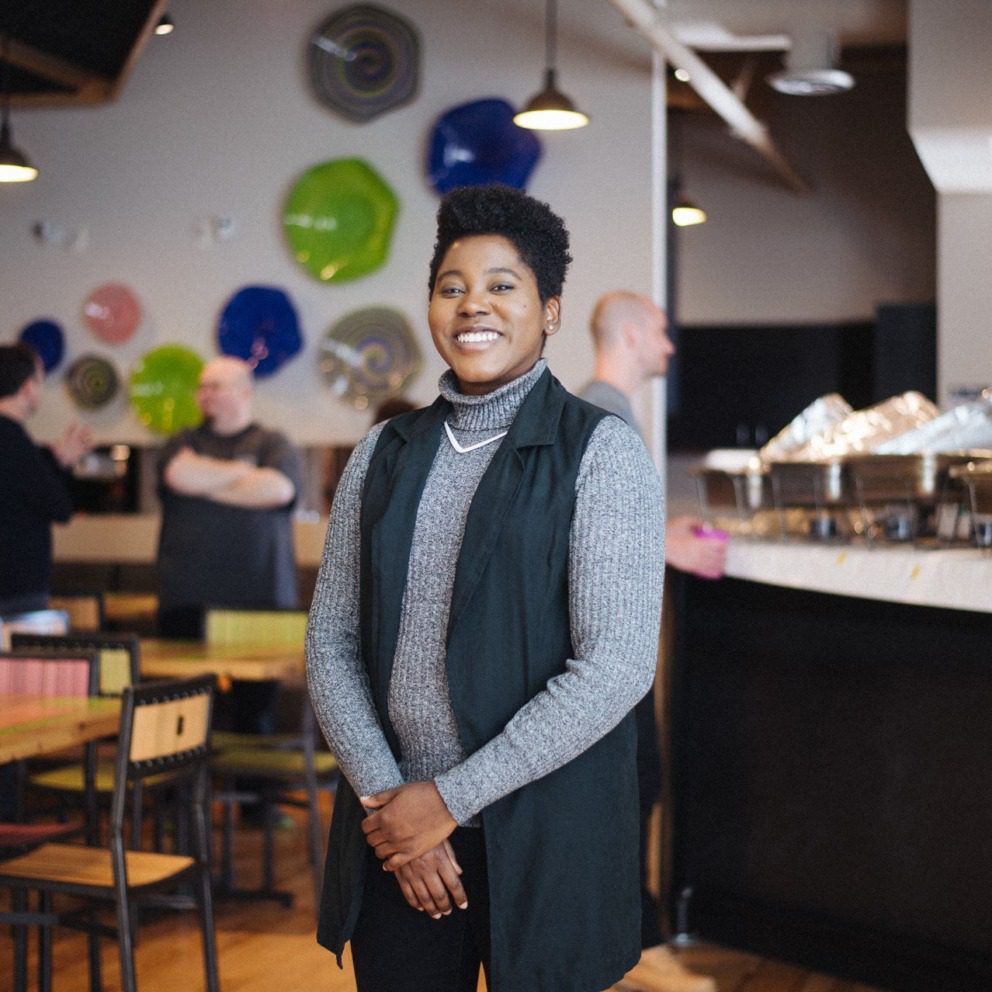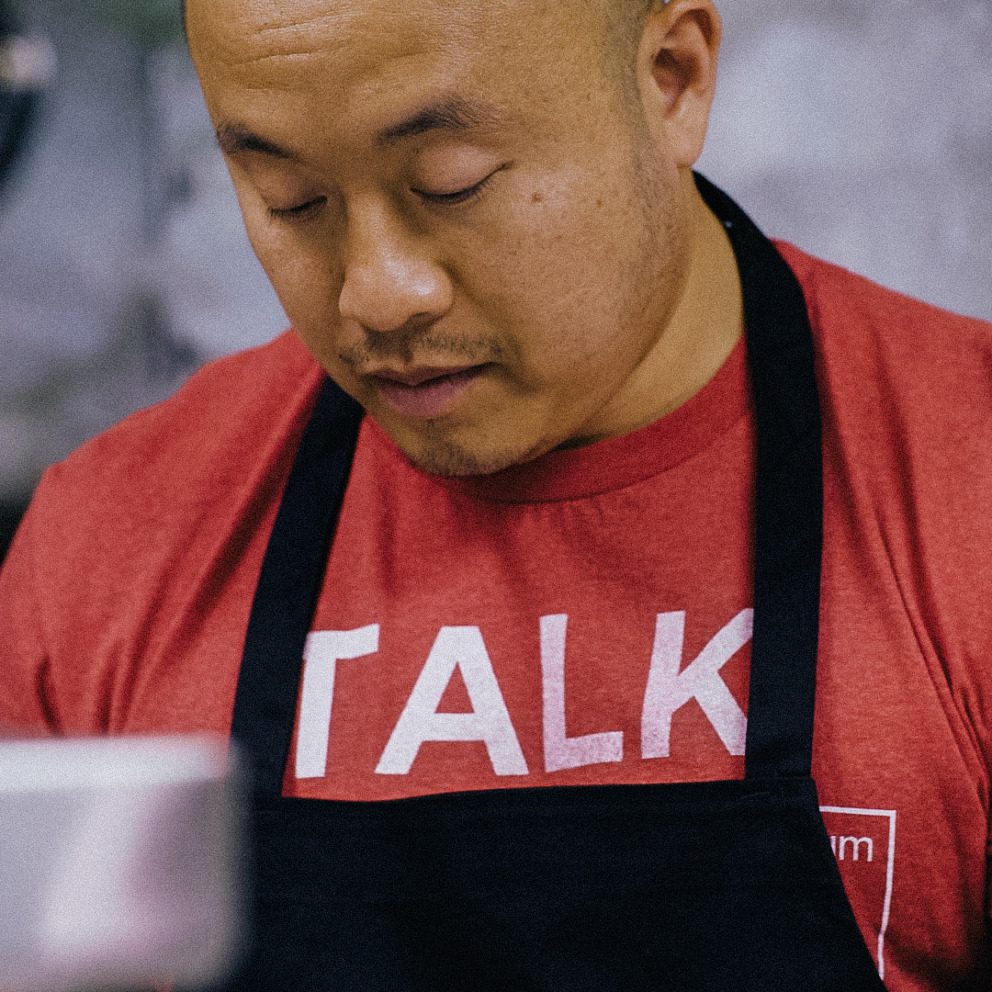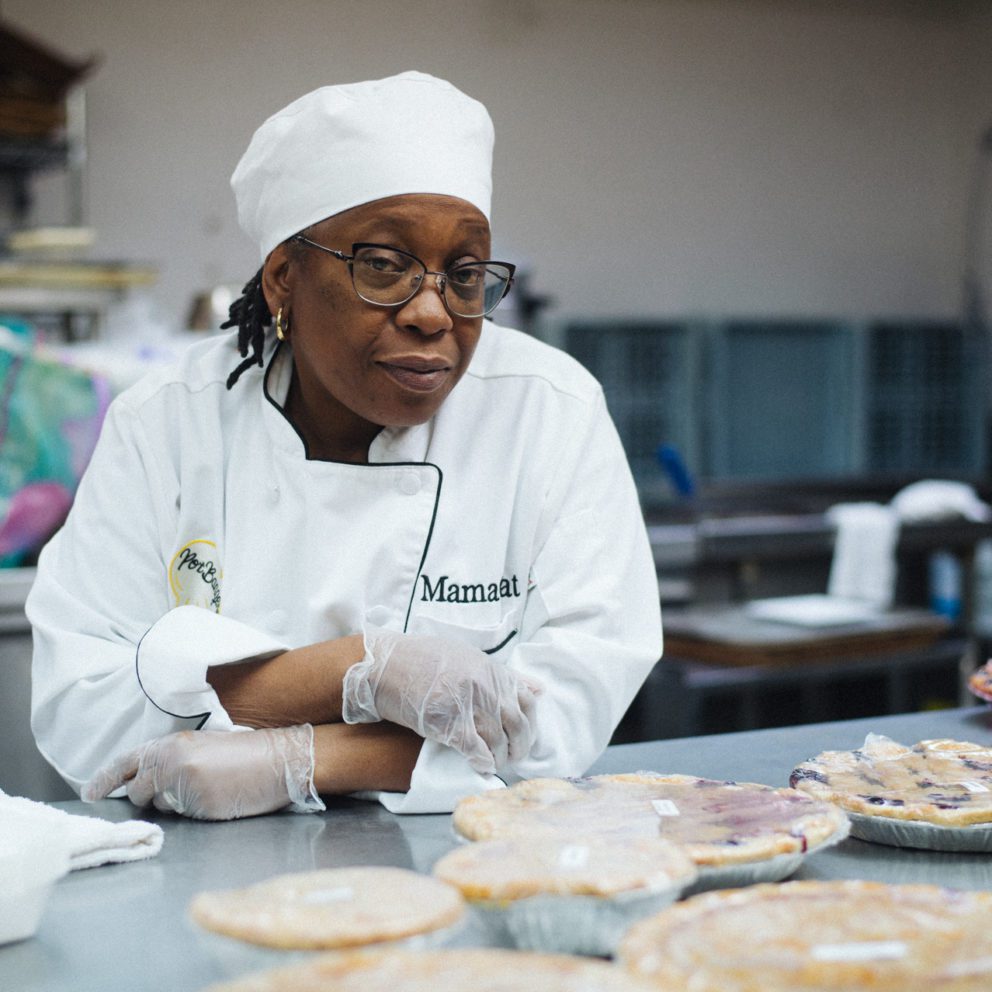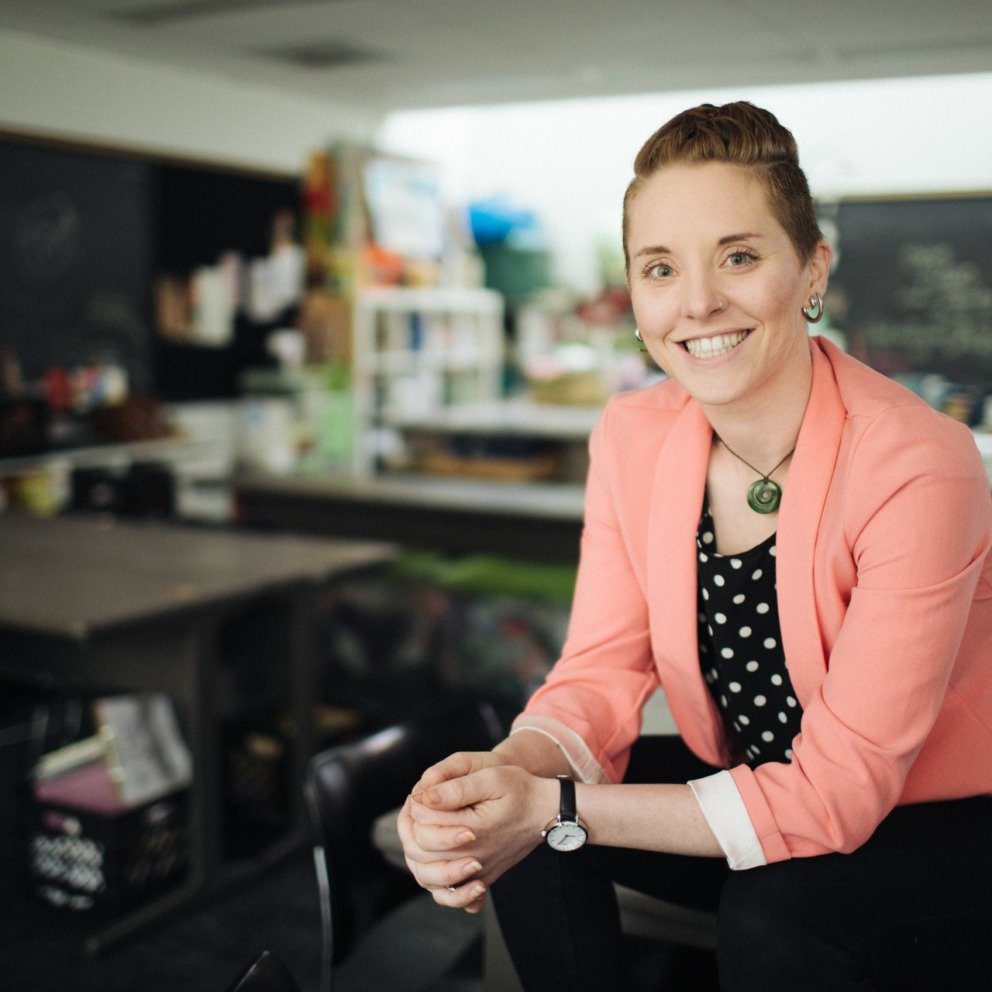Oasis in the Food Desert
Link Market’s new community stores in St. Louis could become the model for other cities tackling food insecurity.
On its surface, the St. Louis Housing Authority building may not look like anything special. Its dark red and golden yellow brick match well with the homes and apartments surrounding it, but otherwise, the exterior of the building resembles many other offices around St. Louis.
But something special is happening behind the brown paper that covers the large windows wrapping around the structure at the corner at Blumeyer Street and Page Boulevard — something that will connect community organizations, food suppliers and neighborhood residents in a new, meaningful way.
“We’re certainly not the first ones to turn a shipping container into a market or a grocery store, but we are the first ones to collaborate with a Housing Authority,” says Jeremy Goss, the founder of Link Market. “And to my knowledge, [we’re] the first nonprofit to open a brick-and-mortar grocery store in a government-subsidized housing project.”
When Goss mentions this, the pride in his voice is perceptible but noticeably subdued. That Link Market, a collection of small grocery stores, might be the first nonprofit in the country to execute this idea is less a feather in Goss’ metaphorical cap and more a necessary accomplishment that advances his goal: eliminating food deserts in the St. Louis region.
The United States Department of Agriculture (USDA) defines a food desert as a low-income community located more than one mile from a supermarket in urban or suburban areas and more than ten miles from a grocery store in rural areas. According to data published by the USDA in 2015 and used in a report by the Missouri Coalition for the Environment in 2018, 57% of St. Louis City’s total population lives in these low-income, low-access (LILA) communities while a disproportionate portion of the city’s Black residents—approximately 70%—live in neighborhoods that qualify as LILA.
It’s an ongoing problem that deeply concerns Goss and has spurred him into action. In the fall of 2017, Goss launched Link Market, which strives to fill the void left by persistent food deserts and food insecurity by making healthy options available, accessible and affordable. The organization sells fresh fruits, vegetables and basic food items from grocery store kiosks that are housed in renovated shipping containers located at select MetroLink stations and other high-use locations, giving people with transportation limitations an easier way to shop for healthy goods. For families that live in any of St. Louis’ food deserts, these mini grocery stores might be the only real access to fresh groceries that they have.
Today, Goss is in the process of opening the first brick-and-mortar Link Market location within the vacant storefront in the St. Louis Housing Authority building on the border between Grand Center and the JeffVanderLou neighborhood. Renting the storefront requires organizations to go through a multi-step application process and to secure the approval of neighborhood residents before moving forward, and Link Market is the first organization to secure that approval in more than five years — something vital to Goss’s mission of providing or connecting services that a community deems important.
Link Market plans to stock shelves with fresh food from nearby gardens and farms like City Greens, Fresh Starts Community Garden and Urban Harvest STL, plus it will offer St. Louis favorites like Billy Goat Chips, Freddie Lee’s Ghetto Sauce and Black Brew Teas. Link Market will also hire employees directly from the community—a community requirement that Goss happily agreed to during the application process to secure the space. The store will accept EBT and WIC and will offer groceries that are SNAP-eligible.
Goss and his team hope the storefront will become the home base for future programs, from delivering groceries to elderly neighbors to partnering with local schools for educational field trips. Link Market is also working with Affinia Healthcare to open grocery store pop-ups in three of Affinia’s health clinic locations. That way, Goss explains, physicians can “prescribe” fresh fruits and vegetables and patients can purchase them at the “Farmacy” (a perfect name for these Link Market pop-ups) at the clinic before heading home.
Working to eliminate food deserts wasn’t originally part of Goss’ plan when he moved from Texas to St. Louis to attend medical school at Saint Louis University. After sharing in his medical school interview that he’d hoped to use his medical degree to help children in South America, his interviewer asked him a simple question.
“He said, ‘Why do you need to go over there to help vulnerable people?’” Goss recalls. “He actually drew me a map of St. Louis and the Delmar Divide and described to me the social, political, racial and economic issues, and I knew immediately this is where I need to be.”
While in medical school, he noticed early on that many of the chronic health problems he treated could’ve been mitigated or avoided completely simply with healthier eating. But Goss says that understanding the potential barriers to a patient’s ability to act on that information is something physicians should take into account. And, he says, more medical schools should integrate social determinants of health into their curriculums to train students to become more empathetic medical professionals.
“Speaking as a physician, food is medicine,” says Goss. “It’s our first medicine. Diabetes, heart disease, strokes and heart attacks are all conditions that are made worse by—and partially caused by—unhealthy eating.”
But for some patients, eating healthy is easier said than done.
“If you live in a food desert, if you don’t have a grocery store [nearby], if you have to take two buses to get to one and do that faithfully every week or every other week for a family of four—how is that possible?” asks Goss.
In 2015, Goss launched Metro Market, a mobile grocery store project he co-founded with two other peers while in medical school. Two years later, with the support of St. Louis’s regional public transportation system and a series of grants, Goss founded Link Market and hired Serena Bugett-Teague and Resenda Sykes to manage operations while he completes his surgical residency at Yale University.
“These two strong Black women are the lifeblood of this,” he emphasizes. “I don’t live in St. Louis—they live here, they’re from here. They get it in ways that I couldn’t even begin to because I don’t have the roots. So, they’ve been the left and right hand of the organization. They’ve made every part of what the Link Market is today, possible.”
The new community store model that Goss, Bugett-Teague and Sykes are building could become the new blueprint for nonprofit stores across the nation — something that Goss welcomes.
“I hope that my phone starts ringing with people who want to emulate the relationship that we’ve created with the St. Louis Housing Authority or buy a mail truck or any part of what I’ve done thus far and copy and paste it,” Goss adds. “I would happily tell them what the formula has been thus far.”
The grocery store’s nonprofit status enables it to operate in ways that for-profit grocery stores can’t afford to. And according to Goss, representatives from Dallas, Texas; Dayton, Ohio; and Kansas City, Missouri have already reached out to him. While food deserts and the broader challenge of food insecurity aren’t unique to St. Louis, Link Market’s sustained success and growth puts St. Louis at the forefront of developing solutions to one of the most nationally-persistent humanitarian challenges of our time.
“I think two or three years from now, we’d hopefully be four or five stores into it. I mean, that’s the goal. This may be the first of maybe two, maybe three grocery stores we open this year,” Goss explains. “I think if we get it right in St. Louis, then we can probably get it right in Illinois and in other places. I’d love to see a version of this in every city.”
